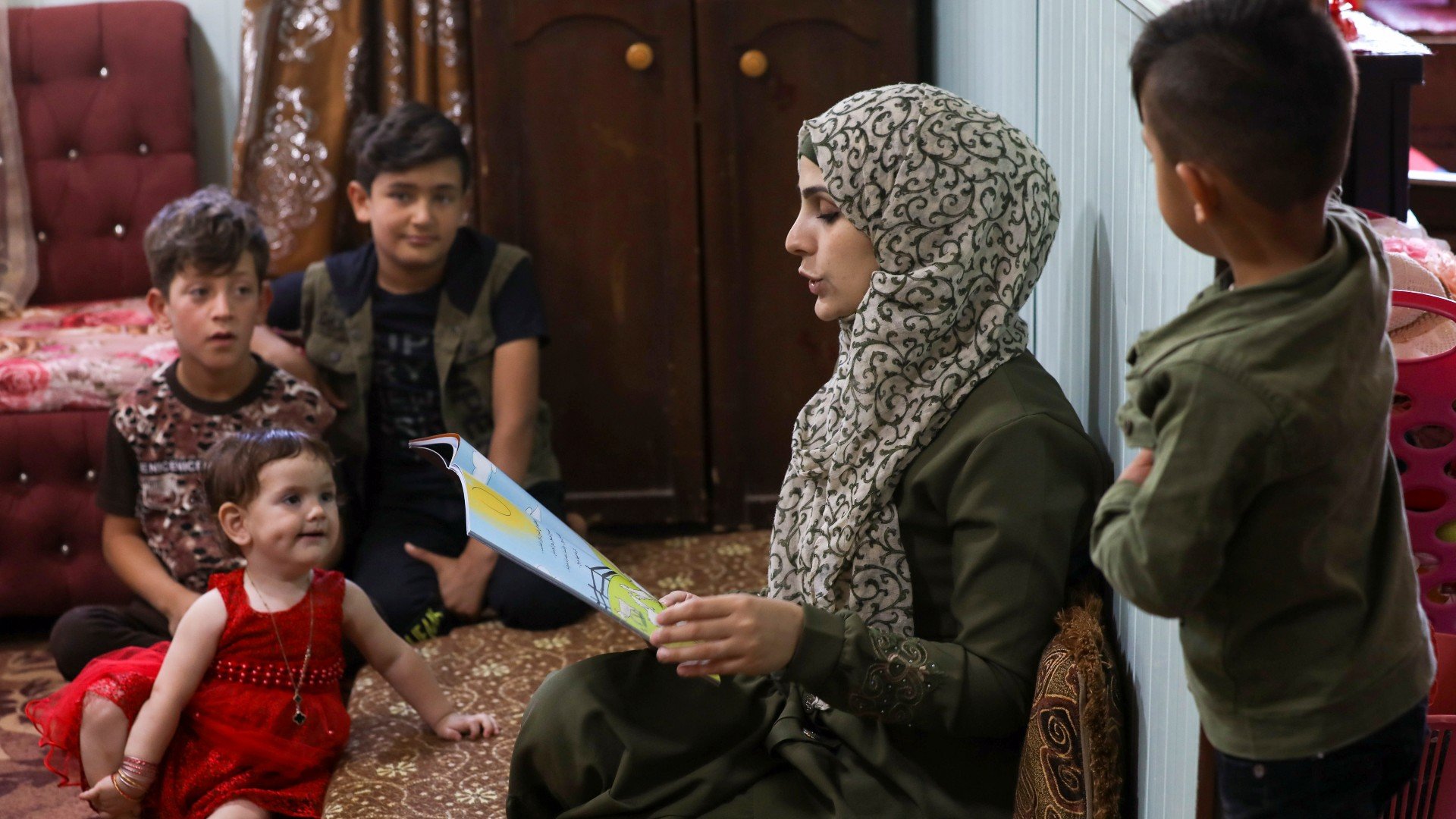The order, signed last Wednesday, says the officials, all senior advisors to Assad, are charged with complicity in crimes against humanity, and war crimes, AFP reported.
They are Ali Mamlouk, head of the National Security Bureau of the Ba’ath party, Jamil Hassan, former head of the Syrian Air Force Intelligence Directorate and Abdel Salam Mahmoud, another Air Force intelligence officer.
French prosecutors believe the trio, who are not expected to show up for the trial or have lawyers represent them, are responsible for the deaths of two French-Syrian nationals, Mazzen Dabbagh and his son Patrick, who were arrested in 2013.
France has issued international arrest warrants for the three.
A preliminary investigation into possible forced disappearances and acts of torture constituting crimes against humanity was launched in 2015 after the family of the two filed a complaint, which widened into a full-blown probe in 2016 and led to international arrest warrants two years later.
Mazzen Dabbagh, a pedagogical advisor at the French school in Damascus, and Patrick Dabbagh, who was studying in the literature and humanities faculty at Damascus University, were arrested in November 2013 by officers identifying themselves as members of the Air Force intelligence services.
U.S. says its forces kill a senior Islamic State leader in Syria
The U.S. military killed a senior Islamic State leader in Syria on Monday, U.S. Central Command (CENTCOM) said on Tuesday, another blow to a group that was driven from its self-declared caliphate years ago but is still widely deemed a threat.
CENTCOM named him as Khalid ‘Aydd Ahmad al-Jabouri in a statement, saying he was responsible for planning Islamic State attacks in Europe and Turkey and developed the group’s leadership structure in Turkey.
Sources in Syria said he was killed in a drone strike in the rebel-held northwest, a region where other Islamic State leaders have hidden out, including former leader Abu Bakr al-Baghdadi, who died during a U.S. raid in 2019.
No civilians were killed or injured in the strike, CENTCOM said, adding that Islamic State “continues to represent a threat to the region and beyond”.
“Though degraded, the group remains able to conduct operations within the region with a desire to strike beyond the Middle East,” it said. Jabouri’s death would “temporarily disrupt the group’s ability to plot external attacks”.
New Israeli strike on Syria kills two civilians: Fourth day in a row
An Israeli air strike on Tuesday killed two Syrian civilians, state media reported, the fourth such attack on government-held areas of the war-torn country in less than a week, AFP reported.
During more than a decade of civil war in Syria, Israel has launched hundreds of air strikes on its territory, primarily targeting Iran-backed forces and Lebanese Hezbollah fighters as well as Syrian army positions.
“The Israeli enemy carried out an air strike” shortly after midnight, resulting “in the death of two civilians”, Syrian state news agency SANA reported, quoting a military source.
The attack came from the direction of “the occupied Syrian Golan, targeting some points in the vicinity of Damascus and the southern region”, it said, adding Syria’s air defences intercepted most of the missiles.
While Israel rarely comments on the strikes it carries out on Syria, it has repeatedly said it will not allow its arch-foe Iran to extend its footprint in the war-torn country.
The Syrian Observatory for Human Rights war monitor gave the same civilian death toll, with its director Rami Abdel Rahman adding that at least “one non-Syrian Iran-backed fighter” was also killed in the assault.
Israel fired “barrages of missiles targeting military areas controlled by Iran-backed groups and regime air defence,” said the Observatory, a Britain-based group that relies on a network of sources inside Syria.
Foreign Ministry
Syria has warned the Israeli occupation and its sponsors against the dangers of its aggressive policies that push the region towards a comprehensive escalation and a new phase of instability.
“Over the past four days, the Israeli occupation forces launched attacks on areas in and around Damascus, Homs and its countryside, caused the martyrdom of civilians, the injury of a number of others, not to mention the material damage,” Foreign Affairs and Expatriates Ministry said in a statement.
The Ministry added that the Israeli occupation government not only hides behind the umbrella of immunity and unlimited support from its protectors, but rather follows in the footsteps of its sponsors in Washington and other Western capitals in exporting crises and escaping from internal problems to external aggressions and crimes, in perpetuating an approach that flagrantly violates international law and the provisions of the UN charter, and aims to perpetuate the lawlessness instead of the force of law and human values.
Jordan’s plan for Syria normalization: Refugees, drugs and militias
Refugee returns, smuggling and militias are among the key issues Jordan is seeking to resolve with Syria as part of its plan to normalize Arab relations with Damascus, Jordanian officials told Middle East Eye.
The plan is based on the idea of reciprocity, said Mohammad Momani, a member of the Jordanian Senate’s Arab and Foreign Relations Committee. “Help us so that we can help you,” as he put it.
According to Momani, the issue of refugees is one of the top priorities in Jordan’s latest push for a deal with Syria. The plan, which hopes to resolve issues between Syria and other Arab countries and help end Syria’s 11-year war, is based on “positive steps that the Syrian regime will take on refugees, namely that a general amnesty will be declared allowing the refugees to return”.
The initiative will also call for security reform in Syria and stress the need to prevent pro-Assad militias, many of which are backed by Iran, from threatening regional security, he said.
“They need to challenge drugs and weapons smuggling. This will be seen as a positive step and will be reciprocated with a step from the international community,” Momani added.


